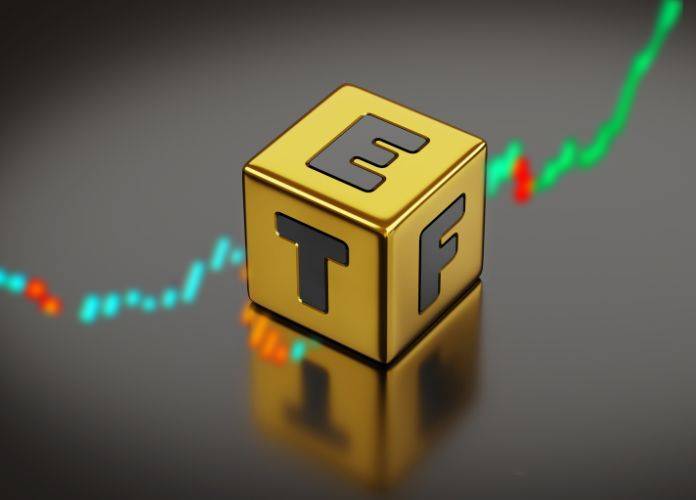In a new report, the Biden administration’s Working Group on Financial Markets details what it believes are the dominant risks posed by currencies like Tether and USDC – and recommends the US Congress enacts new stablecoin laws.
The Working Group on Financial Markets (PWG) worked with the Federal Deposit Insurance Corporation (FDIC) and the Office of the Comptroller of the Currency (OCC) in releasing the 16-page report.
What are stablecoins?
Stablecoin is an abbreviation for “price-stable cryptocurrency”. Cryptocurrencies like Bitcoin and Ethereum have always been plagued by price volatility which makes them almost useless as transactional currencies.
The launch of Tether (originally called RealCoin) in July of 2014 gave people a way to transfer value without having to worry about price volatility. Stablecoins achieve this through pegging – which means linking their coin supply directly to fiat currency reserves (USD, EUR etc) or other liquid assets. This allows users who hold stablecoins to easily 1:1 convert them into real-world fiat currency.
Biden administration wants stablecoin laws
While US treasury secretary Janet Yellen says there is a place for stablecoins in the global payments system, she does not believe there is an appropriate level of oversight currently, which presents risks to users and the broader financial system. “Current oversight is inconsistent and fragmented,” she says, “with some stablecoins effectively falling outside the regulatory perimeter.”
In terms of specific concerns, the report raises no new issues and merely restates the now-familiar litany of money laundering, terrorism financing, investor protection and market stability.
Where the report does get specific, though, is in its recommendations to lawmakers – asking that Congress move quickly to pass laws that require stablecoins be subject to a “federal framework on a consistent and comprehensive basis”. The report says these new laws would be in addition to any existing “market integrity, investor protection, and illicit finance laws” and would address the following key concerns:
- To address risks to stablecoin users and guard against stablecoin runs, legislation should require stablecoin issuers to be insured depository institutions. This would be quite an obstacle for stablecoin issuers in the current environment, given the lack of availability of insurance for cryptocurrency in general.
- To address concerns about payment system risk, in addition to the requirements for stablecoin issuers, legislation should require custodial wallet providers to be subject to appropriate federal oversight. Congress should also provide the federal supervisor of a stablecoin issuer with the authority to require any entity that performs activities that are critical to the functioning of the stablecoin arrangement to meet appropriate risk-management standards.
- To address additional concerns about systemic risk and concentration of economic power, legislation should require stablecoin issuers to comply with activities restrictions that limit affiliation with commercial entities. Supervisors should have authority to implement standards to promote interoperability among stablecoins. In addition, Congress may wish to consider other standards for custodial wallet providers, such as limits on affiliation with commercial entities or on use of users’ transaction data.
Although the PWG report is ambitious in its appeal for new legislation, Secretary Yellon and the agencies involved in its creation are realistic about the likelihood of the US Congress moving quickly – appealing to other government agencies to step up their oversight in the absence of any new laws from Congress in the near term.
The report recommends that the Financial Stability Oversight Council, as well as the SEC and the CFTC all apply their oversight, rulemaking, and enforcement authority to address the concerns highlighted in the report – to the extent that digital assets fall within their jurisdiction.
Tether vs The State Of New York
In terms of actual action against a stablecoin in the US, the February 2021 settlement between Tether and Bitfinex and New York Attorney General’s office may provide some framework for Congress to refer to.
The two companies were charged for violations of the Martin Act and Executive Law § 63(12) which relates to engaging in “repeated fraudulent or illegal acts or otherwise demonstrate persistent fraud or illegality in the carrying on, conducting or transaction of business.” After two years of wrangling, Tether and Bitfinex paid $18.5 million to New York State to settle the matter. In addition, both companies were banned from trading in New York and Tether must submit quarterly reports to ensure it is complying with the agreement.
Said New York Attorney General Leticia James, “Tether’s claims that its virtual currency was fully backed by U.S. dollars at all times was a lie. These companies obscured the true risk investors faced and were operated by unlicensed and unregulated individuals and entities dealing in the darkest corners of the financial system.”
Conclusion
A charitable view of the Tether and New York State case is that the stablecoin was created by well-intentioned people to provide a solution to the obvious volatility problem. However, regulatory obstacles and a hostile banking industry led to the team being forced to make poor decisions.
As a result, Tether attracted the attention of authorities who fined it accordingly. The PWG report reveals that this attention has only increased as the economic influence of stablecoins has continued to grow.
Today, stablecoins are an integral part of the crypto ecosystem. In many ways, the NYAG investigation could be viewed as a blessing in disguise, as it exposed the shortfalls in Tether’s financial management and revealed the reality which had been unnecessarily obfuscated by the organization in the past.
The challenge, and opportunity, for Tether and other stablecoins now, is to proactively build upon their transparency and oversight provisions – and fully validate the faith their users already have in them, before the US federal government mandates that they do so.








